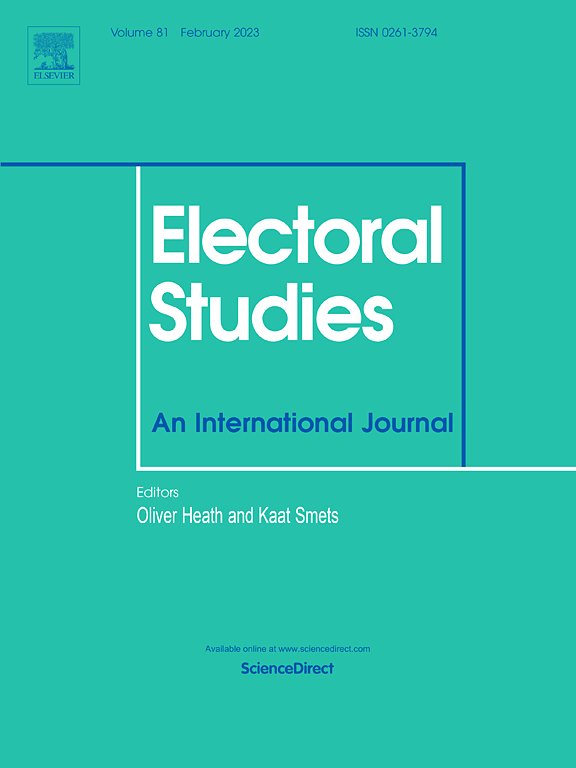ELECTORAL BACKSLIDING
Special Issue of Electoral Studies, coming soon
Throughout the world, scholars and international organisations have voiced their concern in recent years that democracy appears to be ‘backsliding’ (Hellmeier et al. 2021; International IDEA 2021). These forms of backsliding are often described as taking a different form – with open-ended coups d’état and state violence being replaced with promissory coups, executive aggrandizement and strategic electoral manipulation described as being more common (Bermeo 2016; Runciman 2018; Levitsky and Ziblatt 2018). The pandemic has been presented as an opportunity for autocratic leaders to restrict freedoms and extend states of emergency (Edgell et al. 2021). In response to these challenges, a Summit for Democracy was hosted by the United States in December, to start a year of action that would aim to ‘to strengthen our own democracies and push back on authoritarianism, fight corruption, promote and protect human rights of people everywhere’ (Biden 2021).
Elections are an indispensable part of the democratic process (Przeworski 1999; Dahl 1971). They give citizens an opportunity to elect their representatives, hold governments to account and shape policy making. It is well known that there is enormous variation in the quality and inclusiveness of elections around the world (Norris 2014, 2015; Birch 2011; James and Garnett 2020; Norris 2017). An electoral cycle approach shows that problems can vary from cases of electoral violence and voter intimidation, vote rigging, gerrymandered electoral districts, incomplete electoral registers, through to under-resourced electoral officials and poorly designed adjudication processes and more.
The traditional literature on democratization identified three waves of democratization, relating to periods of dramatic increases in the quality of democracy (Fukuyama 1989; Huntington 1993). But electoral integrity and quality of democracy, while closed related and intertwined, are not the same. There is therefore a need to examine the longitudinal trends in the quality of elections, identify the pressures which might be emerging and the policy solutions which could be developed.
After a broad introductory article mapping trends in electoral backsliding, this special issue considers the questions: Where is electoral integrity on the rise? And where have elections been backsliding? We consider these questions with diverse geographic focuses, but also with an eye to different stages of the electoral cycle that have seen new trends in the improvement or decline of electoral integrity. Some of the pressures on electoral integrity may be long-existing causal pressures such as the temptation of incumbents to try to manipulate electoral administration or dampen turnout.
But there are also new challenges as societies under major demographic, technological and environmental changes which are bringing broader changes to societies in the twenty-first century. These changes have brought with them new challenges to the information environment and opportunities for clientelism. At the same time, these innovations can also lead to new forms of voter education and awareness and observation models. How can scholars and practitioners understand these trends in electoral decline and improvement? Furthermore, what policy solutions might help thwart declines in electoral integrity?
This special issue comes ten years after the special symposium on electoral integrity which launched the research agenda and is therefore a timely point to revisit these questions, also coming after major problems in US elections with the storming of the capitol building. Elections and democracy are under threat; but are citizens, electoral administrators and political leaders fighting back?
Contents
Links to papers will appear here following publication:
Electoral backsliding? Democratic divergence and trajectories in the quality of elections worldwide, Holly Ann Garnett and Toby S. James
Sowing the seeds of skepticism? Electoral-integrity beliefs among political elites, Christian Schnaudt
Natural Disasters and the Limits of Electoral Clientelism:: Evidence from Honduras, Sarah Birch and Ferran Martinez i Coma
Do Citizens Tolerate Antidemocratic Statements?, Kristian Vrede Skaaning Frederiksen, Svend-Erik Skaaning
Judicial resistance during electoral disputes: Evidence from Kenya, Thalia Gerzso
Bibliography
Bermeo, Nancy. 2016. "On democratic backsliding." Journal of Democracy 27 (1):5-19.
Biden, Joe. 2021. Remarks By President Biden At The Summit For Democracy Opening Session. Washington DC: US Department of State,.
Birch, Sarah. 2011. Electoral Malpractice. Oxford: Oxford University Press.
Dahl, Robert A. 1971. Polyarchy: Participation and Opposition. New Haven: Yale University Press.
Edgell, Amanda B., Jean Lachapelle, Anna Lührmann, and Seraphine F. Maerz. 2021. "Pandemic backsliding: Violations of democratic standards during Covid-19." Social Science & Medicine 285:114244. doi: https://doi.org/10.1016/j.socscimed.2021.114244.
Fukuyama, Francis. 1989. "The end of history?" The National Interest (16):3-18.
Hellmeier, Sebastian, Rowan Cole, Sandra Grahn, Palina Kolvani, Jean Lachapelle, Anna Lührmann, Seraphine F. Maerz, Shreeya Pillai, and Staffan I. Lindberg. 2021. "State of the world 2020: autocratization turns viral." Democratization 28 (6):1053-1074. doi: 10.1080/13510347.2021.1922390.
Huntington, Samuel. 1993. The Third Wave: Democratization in the Late Twentieth Century. Norman: University of Oklahoma Press.
International IDEA. 2021. Global State of Democracy Report 2021: Building Resilience in a Pandemic Era Stockholm: International IDEA.
James, Toby S., and Holly Ann Garnett. 2020. "Introduction: the case for inclusive voting practices." Policy Studies 41 (2-3):113-130. doi: 10.1080/01442872.2019.1694657.
Levitsky, Steven, and Daniel Ziblatt. 2018. How democracies die. New York: Penguin.
Norris, Pippa. 2014. Why Electoral Integrity Matters. New York: Cambridge University Press.
Norris, Pippa. 2015. Why Elections Fail. New York: Cambridge University Press.
Norris, Pippa. 2017. Strengthening Electoral Integrity: The Pragmatic Case for Electoral Assistance New York: Cambridge University Press.
Przeworski, Adam. 1999. "Minimalist Conception of Democracy: A Defence." In Democracy's Value, edited by Ian Shapiro and Casiano Hacker-Cordon. Cambridge: Cambridge University Press. [Reprinted in Robert A. Dahl et al (eds) The Democracy Sourcebook].
Runciman, David. 2018. How democracy ends: Basic Books.

